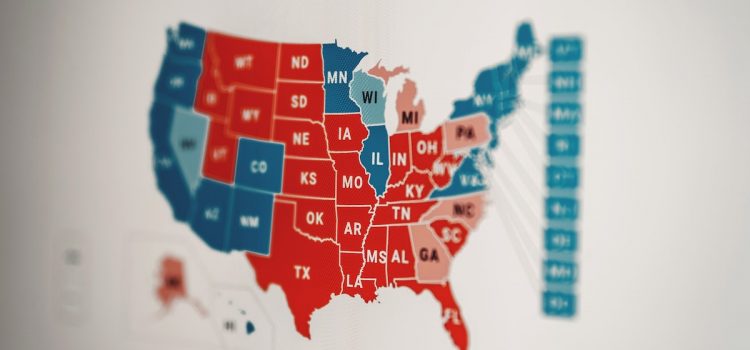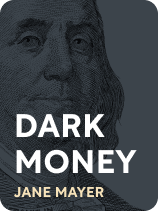

This article is an excerpt from the Shortform book guide to "Dark Money" by Jane Mayer. Shortform has the world's best summaries and analyses of books you should be reading.
Like this article? Sign up for a free trial here.
Why did the Republicans lose the 2012 presidential election? How did the loss shape the conservative approach to elections?
Republicans received a shock in 2012 when Obama won reelection. In Dark Money, Jane Mayer discusses the aftermath of the 2012 presidential election in the context of the Koch brothers and their influence.
Read more to learn how the 2012 presidential election loss led to a shift in the way conservatives operate.
After the 2012 Presidential Election
By 2012, the Kochs had undermined Obama’s administration and created a cultural push in the Republican party toward far-right ideology. According to Mayer, they expected Republicans to beat Obama by a landslide in the 2012 presidential election but were astonished when he was reelected. They had done well in the states, but Mitt Romney had proven to be too weak a candidate to beat President Obama despite the $2.5 billion spent against him.
(Shortform note: Some attribute Romney’s loss less to his weakness as a candidate and more to other circumstantial factors. They suggest that Obama won in 2008 only because of the financial crisis and that his response to Hurricane Sandy helped him win in 2012. Others say Romney would have done better with a different running mate and that he should have chosen someone like Marco Rubio or Bob McDonnell instead of Paul Ryan.)
According to Mayer, the Kochs and other conservatives set about understanding their 2012 loss and what to do differently next time. Based on research from their think tanks, they realized that much of the issue was that people viewed the Republican party as lacking in empathy for the poor and for average citizens. Most people believed that free market policies disproportionately benefited the rich. The Kochs began funding a campaign to change Republicans’ public image to make them seem like they were working to protect American citizens and not just their own wealth (though in private conversations, they admitted that personal profit was their only goal).
(Shortform note: It’s unclear whether the rebranding of the Republican party was successful. Polling one year after the 2012 election showed that a majority of people felt either that the Republican party had made no significant changes or that it had moved further away from representing their interests. Continued polling showed the Republican party’s approval rating remaining around 35-45% in the years following, though it dipped as low as 28% in 2013 and as high as 51% in early 2020. For both parties, polling seems to indicate a declining approval rate over the past 30 years.)
Mayer writes that the Kochs began rebranding themselves publicly to convince people they were concerned with the well-being of average citizens. They made a show of public donations to groups like the United Negro College Fund, and they continued to target academia through the hundreds of programs they were funding at universities across the country. They also began targeting high school students through a nonprofit organization called the Young Entrepreneurs Academy that provided desperately needed funding to schools. That program then taught students that, for instance, it’s okay to pay women less than men for the same work, and that progressive policies are harmful to the poor and cause economic recessions.
(Shortform note: In a 2016 article in The New Yorker, Mayer discusses the success of the Kochs’ rebranding. She notes that they supplemented their philanthropic efforts and conservative educational programs with television ads that depicted them as regular people with deep American roots to make them seem more relatable. They also changed up their decades-long strategy of keeping their public activities secret and began courting the media to improve how they were portrayed. In 2018, Charles Koch announced to his network that they would begin publicizing their contributions to universities, and some Democrats have noted that their rebranding has been at least somewhat successful in that it placed them behind Donald Trump as the main enemy of the left.)
Additionally, says Mayer, the Kochs decided to retool the Republican party, blaming its infrastructure for their 2012 loss. Now, even Republicans who had been touting these free market ideals found their positions jeopardized by wealthy donors threatening to fund and replace them with more extreme candidates.
(Shortform note: Dark money can be even more effective in curating party nominees than determining the results of general elections. Because the turnout for primary elections tends to be so low, it’s often easy for small, well-funded groups to elect the candidates of their choice.)
The Kochs’ efforts proved fruitful in the 2014 election when the Republicans managed to win both houses of Congress. It was the largest amount of outside money ever spent on a midterm election. From then on, explains Mayer, their goal was to obstruct every facet of Obama’s agenda and to undo everything he’d accomplished in the previous six years.
(Shortform note: In response to the attacks on his agenda, President Obama began to embrace his executive power. Though aware of the lack of cooperation he’d be receiving from congress, he declared 2014 a “year of action” and began enacting more regulations through executive order.)
Newly elected officials like Mitch McConnell began carrying out attacks on progressive legislation and agencies like the EPA. Republicans shifted further right or were replaced with officials further to the right. The Kochs had effectively achieved their decades-long goal of making libertarianism mainstream and controlling the government in a way no private citizens ever had before. Nevertheless, Mayer explains, Charles Koch maintained that he was a disinterested party only looking to increase the well-being of the nation.
(Shortform note: While the Kochs have had a massive influence on politics, David passed away in 2019, and Charles is already 87, which raises the question: Will they continue to have a massive influence on politics? Charles’s son Chase has taken over David’s role in the company and made plans to move away from the political sphere in favor of advancing libertarian principles and issues of social justice, suggesting the Kochs’ fortune in the near future might no longer go to supporting political candidates or policies. Charles has said he doesn’t know who his successor will be but that they will be selected by the board after his death.)

———End of Preview———
Like what you just read? Read the rest of the world's best book summary and analysis of Jane Mayer's "Dark Money" at Shortform.
Here's what you'll find in our full Dark Money summary:
- How a group of wealthy individuals has legitimized far-right beliefs in America
- A look at Charles and David Koch's views and tactics
- The influence dark money has had on American politics and society






